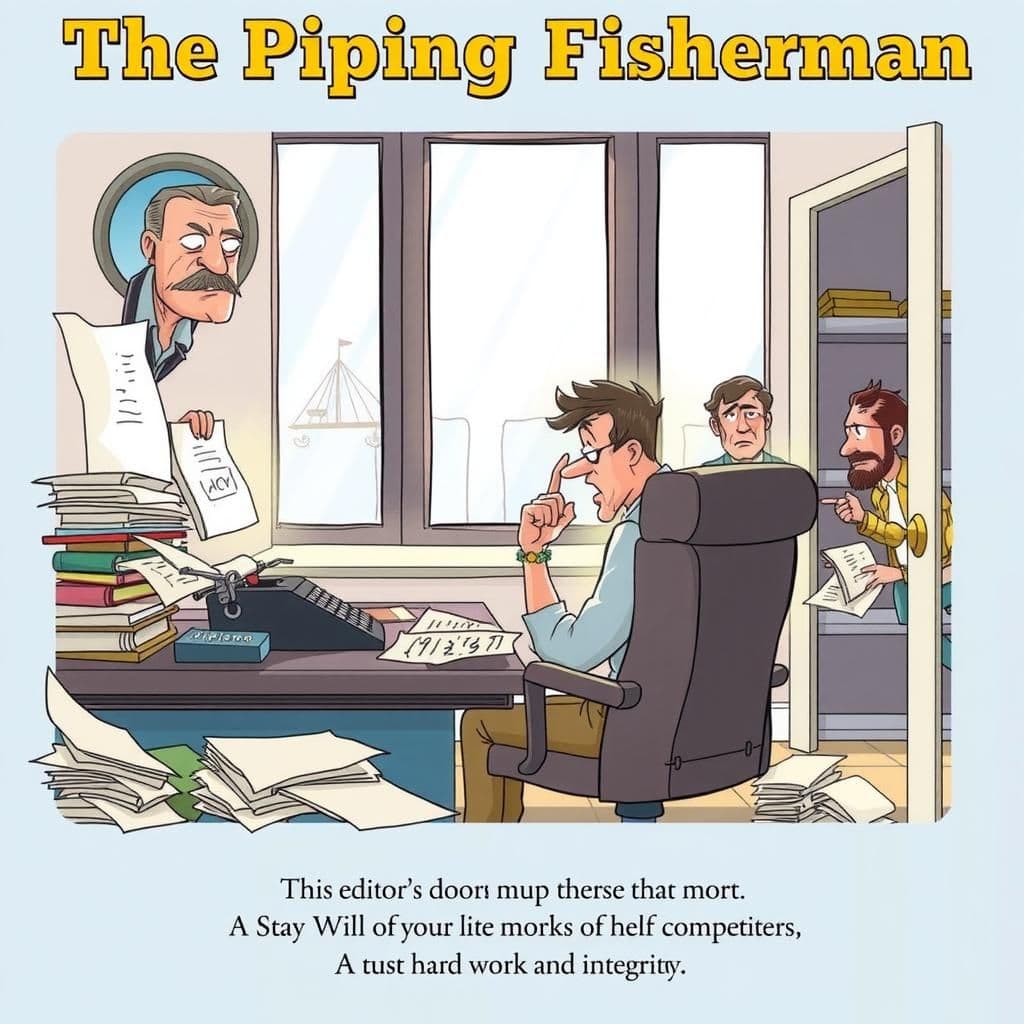The Party Manager and the Gentleman

Story Summary
In "The Party Manager and the Gentleman," a simple short story with moral undertones, a Party Manager attempts to persuade a Gentleman to pursue political office through contributions and endorsements. The Gentleman, valuing integrity over ambition, firmly refuses, asserting that seeking servitude is not an honor but a betrayal of his principles. This short moral tale illustrates the importance of staying true to one's convictions, even in the face of pressure and insults.
Click to reveal the moral of the story
The moral of the story is that true integrity and service to the public require honesty and a refusal to compromise one's principles for personal gain or societal expectations.
Historical Context
This exchange reflects the political skepticism and anti-corruption sentiments that emerged during the late 19th and early 20th centuries, particularly in the United States and Europe, where political machines and patronage were prevalent. The story echoes themes found in works like Mark Twain's "The Gilded Age," which critiques the moral decay of politics, and has parallels in the broader genre of satirical literature that exposes the absurdities of political ambition and the integrity of public service. Similar narratives have been retold in various forms, emphasizing the tension between personal ethics and the often corrupt nature of political systems.
Our Editors Opinion
This story highlights the importance of integrity and authenticity in a world where ambition and conformity often overshadow genuine service. In modern life, a similar scenario can be seen in corporate environments where employees are pressured to endorse questionable practices or agendas for career advancement; a brave individual who refuses to compromise their values might find themselves ostracized but ultimately earns respect and trust from peers for their principled stance.
You May Also Like

The Judge and the Plaintiff
In this captivating moral story, a businessman awaits a court ruling against a railway company and, in a moment of levity, offers to split the potential damages with the judge. However, the judge, realizing his mistake, reveals that he has already ruled in the plaintiff's favor, prompting the businessman to retract his offer and express gratitude instead. This simple moral story highlights the importance of integrity and honesty in the face of temptation.

The Piping Fisherman
In this simple short story with a moral, an editor, frustrated by a lack of subscribers, decides to stop boasting about the qualities of his paper and instead focuses on genuinely improving it. This shift leads to a remarkable increase in subscriptions, prompting envy among competitors who seek to uncover his secret. Ultimately, the life lesson is clear: true success comes from action rather than empty claims, and the moral of the story remains with the editor until his death.

The Power of the Scalawag
In "The Power of the Scalawag," a Forestry Commissioner hastily abandons his axe after cutting down a magnificent giant tree upon encountering an honest man. Upon his return, he finds a poignant message on the stump, lamenting how quickly a scalawag can destroy nature's centuries of toil and wishing for a similar fate for the wrongdoer. This timeless moral story serves as a powerful reminder of the consequences of greed and carelessness, making it an engaging quick read for kids.
Other names for this story
Election Ethics Unveiled, The Gentleman’s Stand, A Vote for Integrity, The Party Dilemma, Honor in Service, The Campaign Conundrum, No Price for Principle, The Reluctant Politician
Did You Know?
This story highlights the theme of integrity in public service, illustrating the tension between personal values and the often corrupt practices of political systems. The Gentleman’s refusal to engage in the expected norms of political ambition underscores the idea that true honor lies in serving the people without ulterior motives.
Subscribe to Daily Stories
Get a new moral story in your inbox every day.